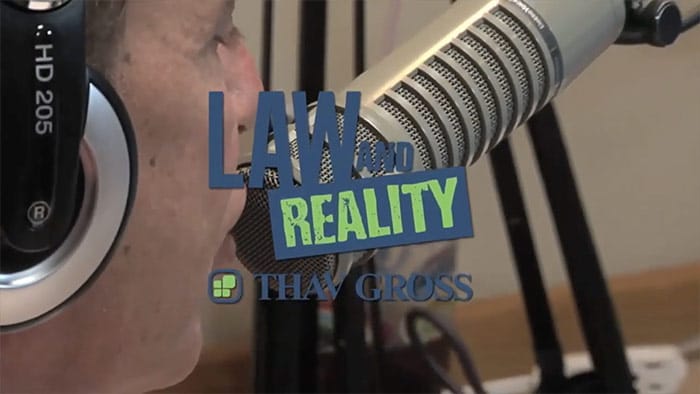DUI Defense Attorney Corey Silverstein was recently featured on TV20 Detroit on the television show…

As I write this column, the holiday season has arrived and with it the end of the year. And when the new year rolls around, the adult industry enters into one of the busiest trade show schedules of the year. In the month of January alone, AVN presents an array of shows in Las Vegas: the AVN Adult Entertainment Expo—both the B2B show and the Fan Fest—the Adult Novelty Expo, the AVN Awards Show, and InterNext. Also in the month of January, XBiz presents XBiz 360.
Trade shows are a fantastic way to network, learn, improve and grow as a member of the adult industry community, and I urge you to take advantage of the many benefits of the trade shows. I have been attending AVN-sponsored trade shows for over a decade and I am continuously amazed by the great seminars and speakers put together by the AVN team.
There is a good chance that you are reading this article while you are at one of the trade shows mentioned above and I encourage you to attend as many seminars as possible. Don’t be afraid to step into a seminar that you don’t think affects your particular business; you never know where and when you are going to pick up a new skill or tool. You also never know when you may meet someone who can help you take your business to the next level.
This year I will be presenting a seminar at Internext on January 15 from noon to 1 p.m. Together with my colleague Lawrence G. Walters, Esq., of the Walters Law Group, we will be presenting a seminar on content production basics from a legal perspective. Model releases, 18 U.S.C. section 2257 compliance, copyright registration, work for hire agreements, licensing, photographer and distribution agreements will all be addressed. Whether you are new to the adult industry or a veteran, this seminar will provide the information that you need to legally produce and exploit content. I would like to extend a personal invitation to readers to attend this seminar, and I hope that you will take a moment to introduce yourself.
One of the topics of discussion for my seminar will be the license agreement, which is also the topic of this month’s article. Feel free to bring any related questions to the seminar.
Before discussing license agreements it is important to understand what a license is. A license allows an intellectual property rights holder (the “Licensor”) to make money from an invention or creative work by charging a user (the “Licensee”) for product use. Licenses protect proprietary rights in things such as software, content and other products. For example, adult-themed images and videos.
While a license agreement can be used to protect different types of intellectual property such as copyrights, patents and trademarks, this article will focus on copyrights related to adult themed images and videos. It is important to note that intellectual property is a complex area of the law and you should consult with your lawyer before proceeding. A simple mistake involving your use of intellectual property can cost you a lot of money.
In terms of granting the Licensee a license to the Licensor’s product, a written license agreement is a must. Do not think for one second that you will be able to move forward without a written license agreement; oral representations will not be enough. The license agreement does not have to be long or complicated. In most cases lawyers recommend having straightforward license agreements to avoid ambiguity. It is important to remember that “forms” that you find online were not made for your specific purpose and that utilizing a “form” that you find on Google could have substantial repercussions.
Hiring a lawyer for a license agreement may seem like an unwanted expense but a lawyer will be able to tailor a license agreement for your particular purpose.
In my opinion four of the most important provisions of a proper license agreement are to identify the following: (I) who the Licensor and Licensee are; (II) the scope of the license; (III) the licensed product; and (IV) the consideration.
The Parties: Licensor and Licensee
The first step in drafting a license agreement is to clearly identify the Licensor and the Licensee. This is extremely important because you need to make sure that the Licensor actually possesses the intellectual property rights to the product that is being licensed. You would be surprised to learn how frequently this error is made and the Licensee learns later that that the Licensor did not have the right to license the product. It is equally important for a Licensor to know exactly to whom he is licensing the product. I urge you to consider conducting an investigation of the Licensee prior to executing a license agreement, especially if the Licensee is a foreign entity.
The Scope of the License
Every license agreement must contain the scope of the license being granted—i.e., what is the Licensee allowed to do with the licensed product. For purposes of illustration I will use the example of a website operator (the Licensee) licensing content from a content producer (the Licensor). In most cases the scope of the license shall either be exclusive or non-exclusive. Exclusive means that the content will be licensed only to the Licensee. Non-exclusive means that the content will be licensed to multiple Licensees. Generally, the cost of licensing content on an exclusive basis is much higher because the Licensor will only have one Licensee versus multiple Licensees when the content is licensed on a non-exclusive basis. The scope of the license also includes the permitted uses and restrictions on the product. Again, using our website operator and content producer example, the Licensor will want to restrict the Licensee from being able to reproduce the content and sell it to third parties and may want to restrict the Licensee to publishing the content on a defined number of websites.
It is essential that the license agreement be as detailed as possible when dealing with the scope of the license because this is one of the highest areas of litigation involving license agreements. Everyone involved needs to know exactly what the product can and cannot be used for.
Identify the Licensed Product
What good is a license agreement without indicating what intellectual property is being licensed? Still using our website operator and content producer example, it is essential that whatever content is being licensed be described with as much particularity as possible.
Nowadays, the content involved in a licensing scenario is usually transferred by the Licensor to the Licensee electronically (example, FTP). Frequently, the file name of a particular image or video contains a series of letters, numbers and special characters (example, tori%01234567). I have always recommended that the following information be included in every license agreement when identifying the product: the type of content (image or video), actual file name, file size, and file description. In this digital age, it is very easy to see how misunderstandings can occur but by providing the most possible descriptive information at the time of entering into a license agreement could prove to save you a lot of legal costs in the future should a dispute about what product was actually licensed arise.
Consideration
Consideration is what the Licensor will receive in exchange for providing a license to the product to the Licensee. The most common form of consideration is money. While most license agreements include a one-time fee (usually paid at the time of purchase), other arrangements are quite common, including recurring payments such as royalties or monthly payments. Whatever the consideration is in your particular case, the license agreement must spell out exactly what it is, when it is, and how it is going to take place.
A frequently neglected issue when defining consideration in the form of money is the currency. Don’t assume that the United States dollar is going to apply. One of the parties may not be on the same page. Always list the specific currency being used in a license agreement—or for any other contract, for that matter.
Other important subjects contained in a license agreement include the term (length of the agreement), the right to modify or combine with other products, prohibited uses, the right to transfer or sublicense, warranties, limitations on the Licensor’s liability, nondisclosure of confidential information, enforcement of remedies, and termination (what constitutes a breach of the license agreement).
In the last few years, the adult industry has been plagued with intellectual property disputes. We have seen multimillion-dollar verdicts, sites being seized, and countless businesses ceasing operations. It is indisputable that copyright and license holders must do everything in their power to protect their valuable intellectual property. As noted above, license agreements do not have to be long and complex but they do need to include very important information that is tailored to your needs. If you are a Licensor, it is essential that have an agreement in place that will protect you against a Licensee that abuses the license being granted. If you are a Licensee, you need to make sure that you get and understand the rights associated with the license that you purchasing. The license agreement is the most important and essential part in the process of obtaining a license and should be given the time and energy that it deserves.

